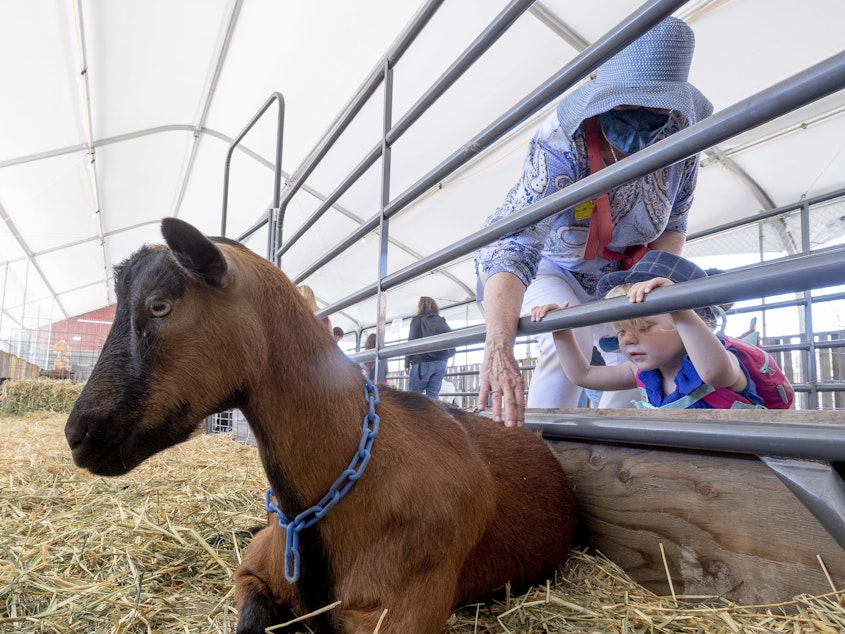Opinion: Animals Deserve Gender Pronouns, Too

If a cat or dog shares your domicile, I'll venture a guess that you don't refer to the four-footed family member who licks your face, naps in your lap, sleeps on your bed and inhales the redolence of your dirty socks — as if they were saturated with rose petals — as "it." You probably call them by a name; and refer to them as "he" or "she" and various nicknames inspired by their personality and habits, and for that matter, yours.
A group of more than 80 people with an interest in animal welfare, including Dr. Jane Goodall, have signed a letter calling on the editors of the Associated Press Stylebook to change their guidance so that animals in news stories would be identified as "she/her/hers and he/him/his when their sex is known, regardless of species, and the gender-neutral they, or he/she, or his/hers when their sex is unknown."
News organizations, including NPR, often follow the guidance of the AP Stylebook. The signatories of this letter hope that when we write about animals in zoos, shelters, fields, farms, forests, seas, slaughterhouses and labs that they are recognized as living beings who feel: hunger, fear, happiness and pain.
It would mean writing sentences like, "The rat was injected with the virus ..." or, "The deer was struck by the car ..." and he, she or they died — not it.
The proposed change might seem difficult to imagine right now. But consider how the care we take with personal pronouns for humans has changed over the past several years.
Sponsored
Ben Dreyer, copy chief at Random House and author of the bestselling Dreyer's English: An Utterly Correct Guide to Clarity and Style, says these changes remind us that thoughtful adjustments to our language don't have to wait for a stylebook.
"Writers should write the way they see fit to write," he told us, "and the changes they wish to effect either will or won't be embraced broadly. The so-called genderless 'he' for instance is now overwhelmingly a thing of the past because writers have abandoned it."
Laura Hillenbrand, author of Seabiscuit and other bestselling books, told us that if we don't refer to animals in personal terms, "we open ourselves to abusing, neglecting, and exploiting creatures whose capacity for suffering is no less than our own.
"People and animals share an immense capacity to feel," she says. "[W]e form beautiful, profound relationships with them, and we justly place animals on a moral plane alongside ourselves and far above that of the cinder block or the hubcap, the things we call 'it.' "
Referring to animals in personal terms may help us recognize how much of life we share. [Copyright 2021 NPR]
